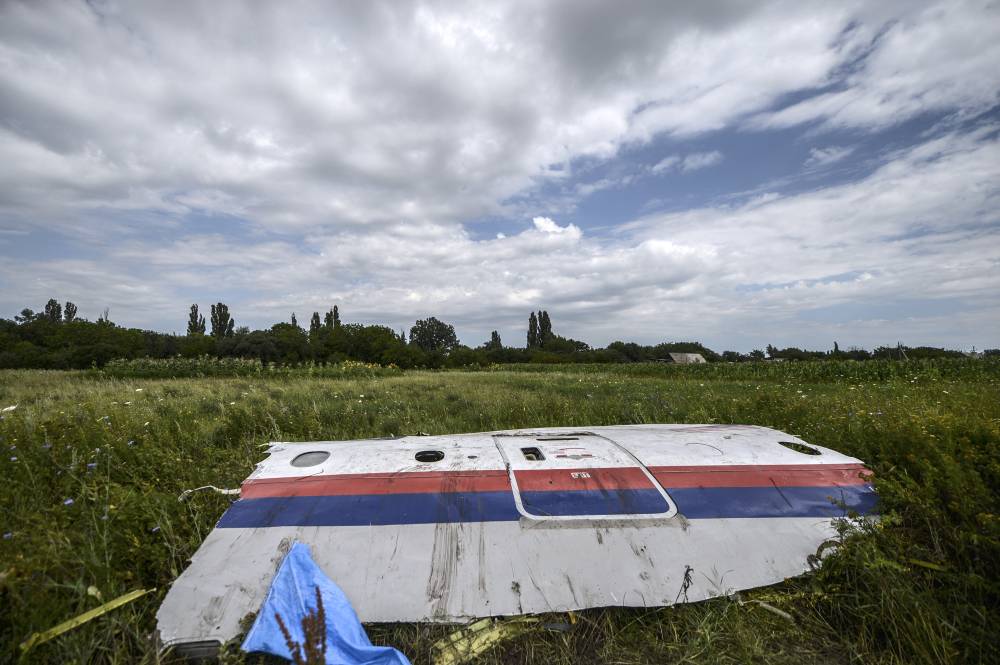MH17: Lesson learned from trans-boundary tragedy
The event taught Malaysia many things, especially with regard to handling trans-boundary crises and managing national disasters internationally.
MAIMUNAH OMAR
"THE world is rocked following the occurrences of major aviation-related accidents." Ten years have passed since Malaysia Airlines Flight MH17 was shot down in eastern Ukraine on July 17, 2014, while travelling from Amsterdam to Kuala Lumpur. The awful tragedy resulted in the deaths of 15 crew members and 283 passengers.
The event taught Malaysia many things, especially with regard to handling trans-boundary crises and managing national disasters internationally.
Trans-boundary crises, catastrophes, and disasters include various levels and domains of governance and most of all, raise a series of unique issues. Such issues include chemical spills, aeroplane crashes, and major infrastructure malfunctions.
It is a fact that transboundary crises involve several national jurisdictions. For example, in the MH17 disaster, these jurisdictions included the crash site, the nation where the airline was registered, and the nations where the victims were from.
Each has its laws, regulations, interests, and authorities. However, addition to these and many other policy sectors, the MH17 case also had to deal with criminal prosecution, international diplomacy and foreign affairs, defence and civil protection, aviation security, and safety inquiry.
Involvement of The Whole of government and Whole of Society (WoGoS)
Immediate actions were taken when the Malaysia National Security Council (MNSC) dispatched the Special Malaysia Disaster Assistance Rescue Team (SMART) to the disaster area together with other agencies in this mission.
On July 18, 2014, 116 personnel were sent to Kiev, Ukraine. They included the SMART team, the media coverage team, the Naval Special Warfare Forces (Paskal), the Armed Forces Religious Affairs Corps (Kagat), the coordinating team from MNSC, Foreign Ministry and the Department of Civil Aviation (DCA), and the ad hoc-formed DVI team.
The MNSC issued a directive to begin the search and recovery operation in Hrabove, Donetsk, along with the ensuing forensic investigation. The mission's leader was Colonel Mohd Sakri Hussin, also designated as the National Security Council's (MKN) chief negotiator.
When the flight recorders were submitted to Malaysian officials in Donetsk on July 21, the initial mission of retrieving the flight recorders was regarded as successful. Kudos to the team!
Meanwhile, back home, the families' pain, sadness and grief are shared and shouldered together. The Women, Family and Community Development Ministry offered grief counselling services to the family whose members boarded the ill-fated aircraft. In the meantime, MAS provided financial assistance to the family as well. Malaysia also sent representatives of various religions to the Netherlands to manage the funeral arrangements for victims according to their religious rites.
The Malaysian Consultative Council of Buddhism, Christianity, Hinduism, Sikhism, and Taoism representatives were sent to Amsterdam to facilitate the repatriation of the remains of non-Muslim victims. This demonstrates how noble the Malaysian government is to the Malaysian citizens who have sacrificed themselves in the line of duty.
Challenges
It is irrefutable that there are many challenges in handling transboundary crises. The challenges involve cooperation among agencies, facility planning and setup, logistics, and health and safety aspects, as well as effective communication and collaboration with other international delegates.
According to Colonel Mohd Sakri, “The most important thing is to be well equipped with a general update on the situation, and it is essential to take bold action when the knowledge about the current issue is obtained.
"Sometimes when there arise difficulties in unfavourable places, there are also factors like secrecy and confidentiality between the countries involved that need to be considered and maintained. Of course, the most important thing is how we design our Malaysian team to represent the whole government that upholds one policy, in respect of Crisis and Disaster Management.”.
One more important thing is effective communication. An effective communication is crucial because it will result in better consultations. This was proven when one of the members of the negotiation team a medical doctor from the Malaysian Armed Forces demonstrated and communicated well during the discussion of retrieving the black box.; indeed his prime role was to ensure that what was required, or any issues that had arisen can be communicated effectively. Hence, better communication will result in better negotiations.
Disaster Victim Identification (DVI)
This incident also gave whole new experience working with other international DVI experts, From making observations on disaster operations and giving an insight into how a proper DVI process should be conducted.
For Malaysia, there is much to improve on aspects of planning, particularly the coordination and training for those in the front line of the disaster management, as well as having a proper DVI organisational structure and facility set-up.
The MH17 tragedy is the first-ever incident in which Malaysia was involved in an international DVI operation. For the DVI team, 24 team members (from the Forensic Medicine Service of the Ministry of Health, the Royal Malaysian Police, the Malaysian Armed Forces and the Chemistry Department of Malaysia) were deployed.
Conclusion
It is undeniable that the aviation tragedies that hit Malaysia have strengthened the bilateral ties between the nation and other countries. The mysterious disappearance of MH370 and the downing of MH17 have brought countries together, bound by strong diplomacy at the highest levels of international governance.
Above all, we should be reminded, and humbled by the fact that many valuable lessons have been learned and should be learned from this tragic incident.
Lt Kol Ts Dr Maimunah Omar is the Assistant Director of the Malaysia Institute of Defence and Security (MiDAS).
The views expressed in this article are the author's own and do not necessarily reflect those of Sinar Daily.










